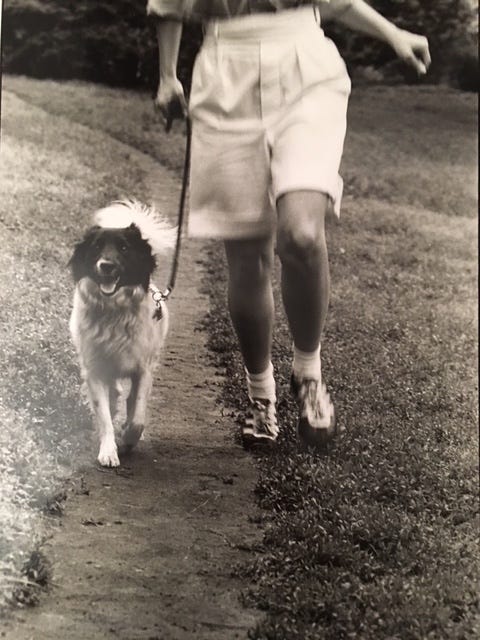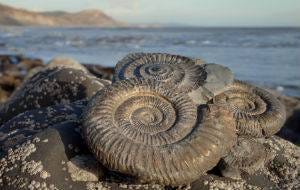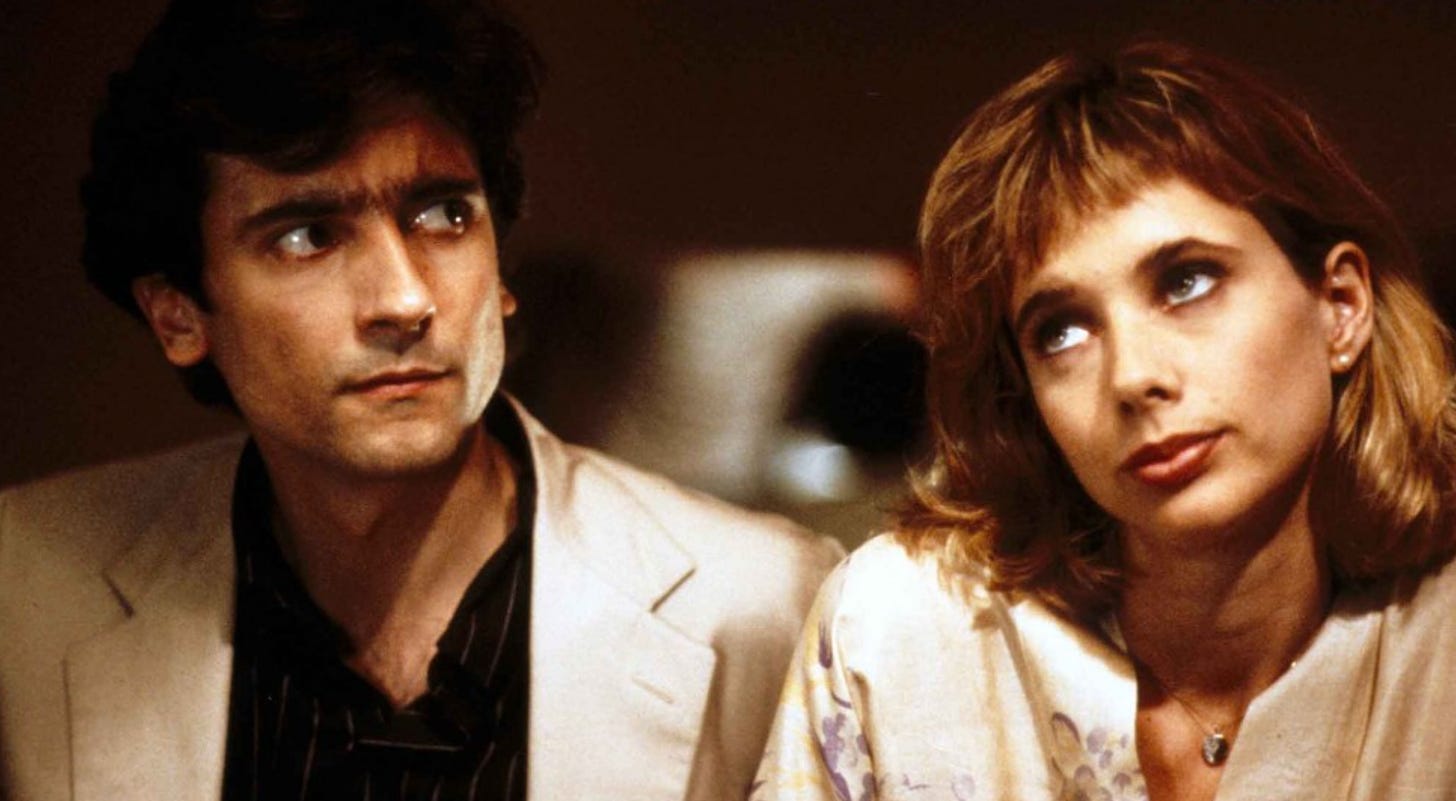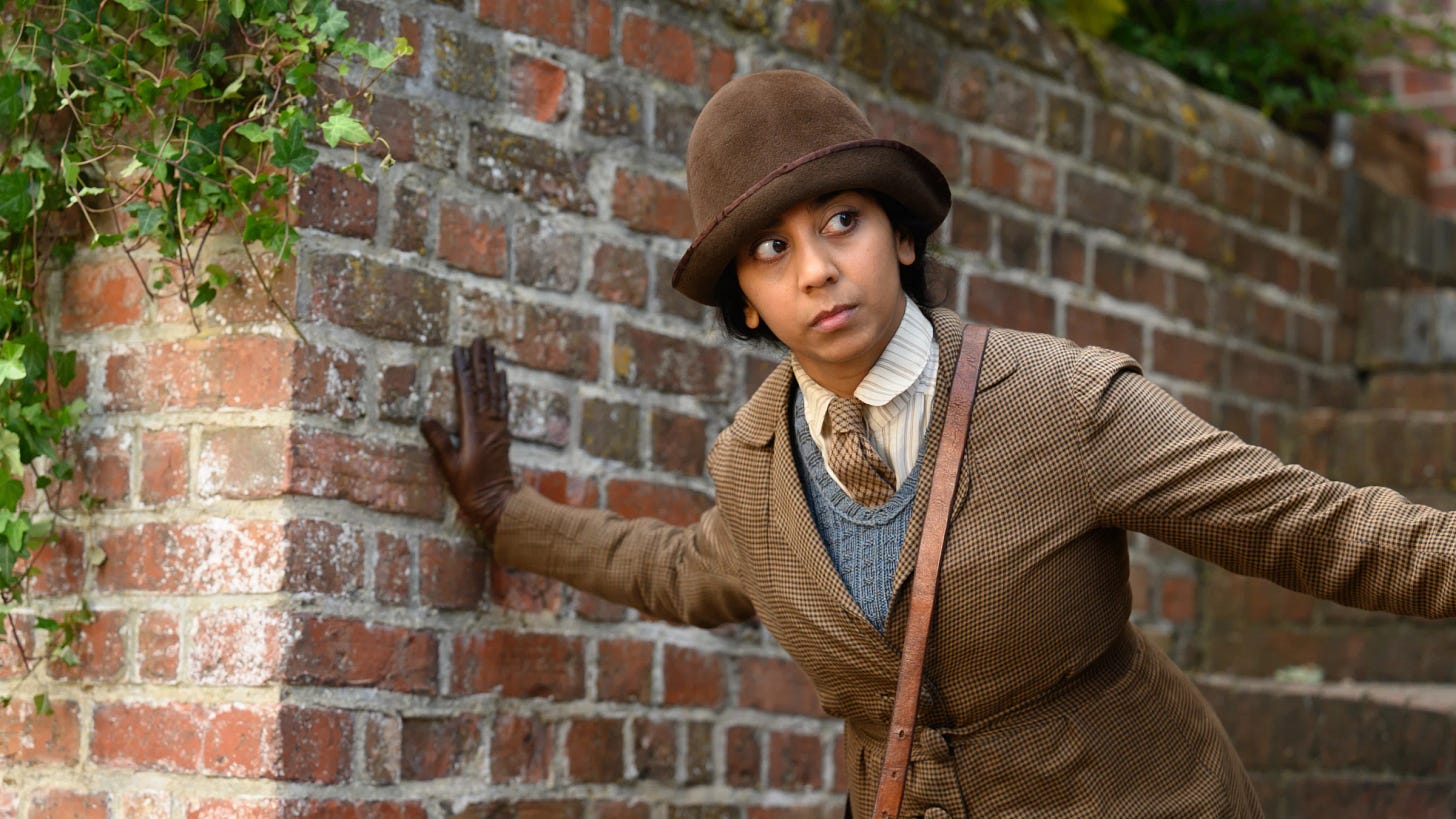I am 25 years older than my new friend. I know a number of women her age, and with none of them do I feel like someone’s mother. An astronaut traveling quickly relative to Earth will experience time passing more slowly than an observer on Earth. This is because acceleration is equivalent to a gravitational field, and clocks slow down in gravitational fields. I don’t know how I look to people on Earth. I didn’t feel like the mother of my dog.
Sasha, my dog, died thirty years ago. I still have his collar and leash. If anything, the dog was me. I would let him run in Riverside Park, knowing at some point he’d dart off and I’d have to stand on a path, calling his name. He would have smelled a squirrel. I would have done the same thing. Calling his name, I’d taste the metal thought I won’t ever find him, as I usually did, sniffing something under a tree. He’d look up as if to say, “What’s the big deal?” I thought I was giving him freedom. When have I ever given anyone freedom?
My new friend is tall and beautiful. She’s at a point in her life I understand because I’m always at this point. I remember waking up in the bed of a friend’s parents when I was 17. I remember wanting to hold onto the feeling of suspension and getting dressed as the boy watched and smoked. I remember walking to the Museum of Modern Art and imagining a camera watching my route overhead and another camera on a dolly moving back as I advanced. I remember thinking, This is your life. I meant This is your life until something else grabs your attention.
A few weeks ago, I was speaking on the phone to a friend who said Joe Biden wasn’t going to step down. If Biden wasn’t going to step down, that meant Richard and I would have to move to the UK for at least four years. We hit on Edinburgh, a city neither of us has ever lived in. The plan was no mirrors and no ghosts.
It was easy to imagine a new life. We’d streamed a TV show set in Edinburgh, and I could see us climbing up and down the many stone stairs there. I could see us packing two suitcases and leaving our house behind. We’d be strangers and make new friends, the way we had in Hudson. We were picturing ourselves in Edinburgh at the same time we are renovating our house. The roofers have already installed a new roof, and we’ve paid a conractor to re-side the house and build a new deck.
I prefer the concept of sisters to the categories mothers and daughters. My sister Ellen died seven years ago, and I talk to her all the time. I’m now older than she was when she died. When an astronaut returns to Earth after a long period in space, she looks younger to the people who were once the same age as her. In reality, she looks younger by a few seconds. In sci-fi, she’s fallen out of step with her generation.
At summer camp, I’d run to my sister in the morning at the flagpole. For some reason, we’d gather there before breakfast. We’d gather on a big sloped lawn. It looked big to me at the time. Many decades later, I visited the camp and saw it was quite small. Ellen would lie on the grass, put her feet on my hip bones, and hoist me into the air as a flying angel. On Earth, as you move around, people mistake you for a type of person they have a name for when in fact you are really a dog.
After Biden made way for Kamala Harris to run for President, Richard said, “I think we should go to the UK, even if she wins.” Before this, he’d been saying he didn’t want to go back home. He meant he had unfinished business there. He meant he felt unfree in the British class system and the way his accent is judged there. The other day when we were walking on Warren Street he said, “I have friends back home I’d like to see.” He said, “If we go to the UK in the winter, Edinburgh will be cold and dark. I think at that time of year, we should go to Dorset.” One summer in Dorset, we walked on beaches where everyone finds fossils. We found bupkis. I said, “We can always look for fossils again.” He said, “It’s better to find a fossil than become a fossil. Let’s have an adventure.”
We are always not who we once were. Ish. The other night we watched After Hours (1985), directed by Martin Scorsese. In the movie, all the female characters are the same. Every one. Rosanna Arquette, Terri Garr, Catherine O'Hara, Verna Bloom, Linda Fiorentino. Every one is dizzy, on the verge of a desperate act, predatory, crazy needy, speaking in non sequitors. They are individually and collectively where a man with thick hair and a tailored suit, played by Griffin Dunne, is going to dip his toe in quicksand.
The actresses look like for fuck's sake why do we have to be moronic to be mysterious, and why do we have to be mysterious to make an impression? I remember liking the movie when it came out, half a lifetime ago. Who was I, I have to ask myself? I still have clothes from that time. Every closet is a portal to outer space.
Is someone of a different age from you living in a different time from you? I suppose they would have to be. My new friend is a visual artist. I love hearing about the art world du jour, and I love seeing her work. Her art looks like her, beautiful and a bit mysterious and contained. With certain people when I am the younger one, and with certain people when I am the older one, I can’t see the edge of the tape on the roll. I can’t see where my time ends and their time begins. After we go somewhere, Richard will say to me, “Didn’t you notice the way they were looking at you?” I’ll say, “No.” Being with Richard is like having an external brain, scannng for social cues.
He fears if we go to the UK for an extended time, he’ll be looking for 1984, the year he left England for good. He’ll be expecting to hear the phrases and street language he used at that time. He fears the home he left no longer exists. Like Atlantis, it long ago sank under water. In the years since, when he’s visited, the feeling that he’s stateless has come over him, belonging neither to the world he left or the one he came to, and when he’s not home, meaning when he’s in the US, that feeling of dislocation is not destabilizing. Back in England, where he should feel he belongs, he’s unmoored.
I wanted to call this piece “Easy Travel to Other Planets.” It’s the title of a novel written by Ted Mooney published in 1981. I loved this book. In it, a woman has a sexual affair with a dolphin. I don’t know what I’d think of the book now, and I’m not tempted to find out. Some memories you want to leave the way you remember them. I used to see Ted Mooney waiting for trains at the 96th Street subway. One day I told him, “I love your book.” He looked a little startled to be recognized. Decades later, we became friends on Facebook. When, a few years ago, I saw he’d died, I let out a gasp.
Around this time, I gave up my apartment in New York City. Before leaving, a sweet woman came to see my place—a friend of the movers we’d hired. It would turn out the landlord wouldn’t rent it to her. She was 86 and was considering moving to a building with elevators. She lived in a three-story walkup. She was wearing a straw hat. Her skin was smooth. Her cheeks were full. She had been a working actor most of her life. We raised glasses to toast our meeting. She didn’t really want to leave her home.
I was excited seeing my apartment in ruins. The worse it looked, the easier it was to leave the planet. Friends said things like, “You’re happy in Hudson. You don’t need New York.” It wasn’t the reason I was giving up the apartment. I can be in love with two sides of a contradiction at the same time. So can everyone. It’s the human condition.
The great freedom of moving forward is there’s no meaning in it. There’s only meaning if you attach it to something looking back. The easiest way to defy gravity is walk past mirrors. As I get older, more and more my inner life is a museum of my parents.
After Richard and I moved what we could take in the car, after I told the landlord I wasn’t signing another lease, after we hired movers to transport the art and furniture, I was looking forward to being as happy as I am now, writing to you.
In other news.
In the UK, it’s illegal to make a movie without Olivia Colman. I'm okay with that. Last night, we watched Wicked Little Letters (Netflix), starring Coleman and Jessie Buckley, who is always shot out of a cannon onto your lap. I'm okay with that. The movie is set in the 1920s, in an English seaside village, and is based on a real series of trials that involved a sudden flood of wildly obscene letters sent through the mail to people the letter-writer loathed.
Anjana Vasan plays the unappreciated copper in the local police who gathers a band of women to sleuth out the culprit. It's gloriously revisionist—the dialogue, the girl-power ethos, the mirror reflecting male humans as obstructionist and stupid at almost every turn. I'm okay with rewriting every story ever written that serves the interests of obstructionist and stupid men. All you have to do is allow the female characters who have been lying for the last 10,000 years to tell the truth of how they really feel.










For those interested in how the pieces in "Notes on Another New Life" get written--the craft and form elements I think about--I offer monthly Zoom conversations, and this month it's on Saturday August 24 from 3 to 4 EST. To RSVP and to learn more about it, please email me at: lauriestone@substack.com.
💘🙏🏻💘🙏🏻💘🙏🏻“I'm okay with rewriting every story ever written that serves the interests of obstructionist and stupid men. All you have to do is allow the female characters who have been lying for the last 10,000 years to tell the truth of how they really feel.”